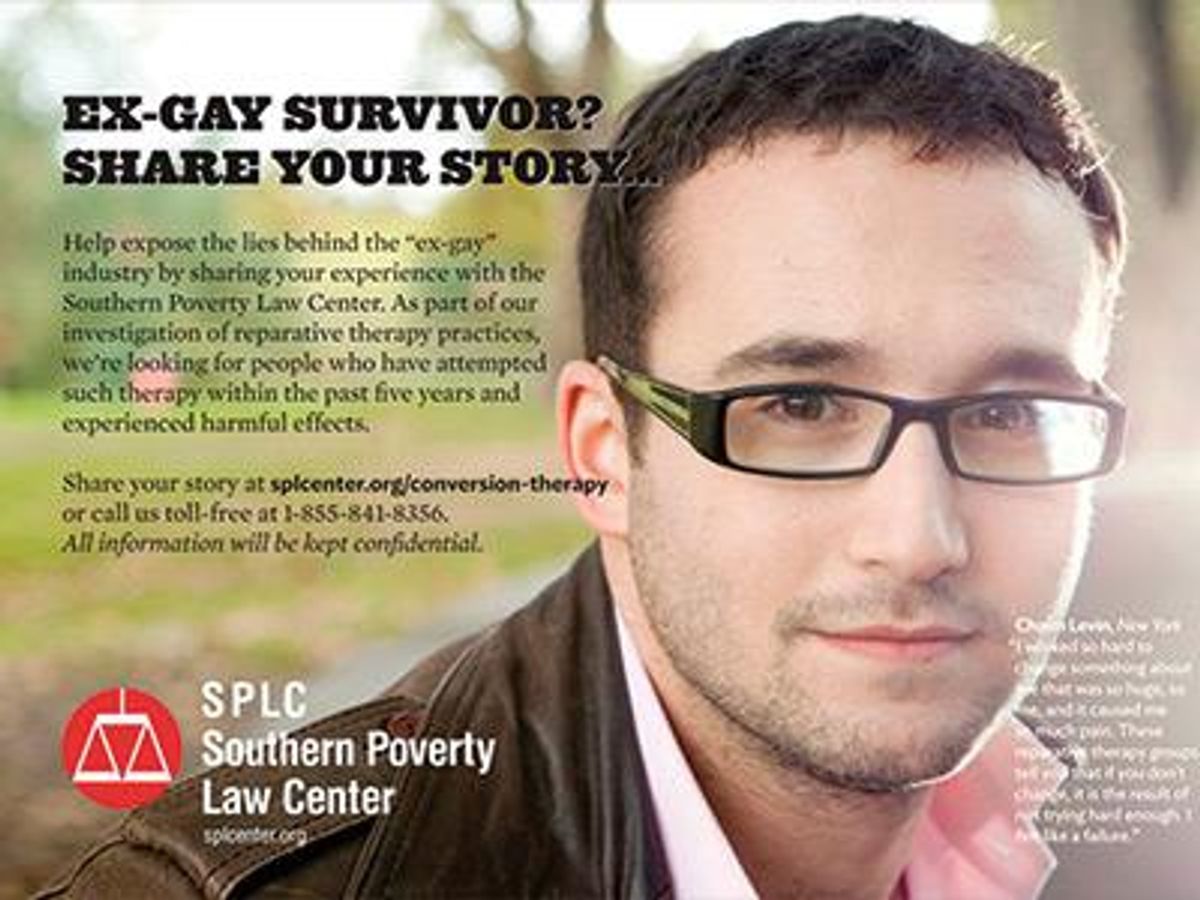Though the practice is denounced by the Obama administration and every major medical institution in the United States, only New Jersey, California, and Washington, D.C., have bans on so-called gay-conversion therapy. But because the laws refer to minors and state-licensed practitioners only, many are left without a basis for lawsuits. A current case working its way through the Garden State, however, may set a precedent that undermines the credibility of quack organizations and could provide grounds for victims to gain justice.
Four young men, Michael Ferguson, Benjamin Unger, Chaim Levin [above, left], and Sheldon Bruck, are suing Jews Offering New Alternatives for Healing (JONAH), a conversion therapy service, for damages incurred during participation and afterward, as a result of the lasting trauma. Rather than focusing on its questionable practices -- the plaintiffs described sessions in which they beat effigies of their mothers with tennis rackets or were subjected to homophobic slurs while naked in a mock locker room -- the lawsuit has at its root the novel idea that JONAH violated the state's Consumer Fraud Act (CFA) by claiming that it could alter the participants' sexuality.
Already the case is being hailed as a watershed moment by the Southern Poverty Law Center, who make up the plaintiffs' legal team. Ahead of the summer trial, the Superior Court of New Jersey ruled that, in advertising homosexuality as "a mental illness, disease, disorder, or equivalent thereof," JONAH had violated the CFA. Citing specific "success" statistics "when there is no factual basis for calculating such statistics" was also deemed a violation.
"Despite the consensus of mainstream professional organizations that conversion therapy doesn't work," Christine P. Sun, then deputy legal director of the SPLC, said in 2012, "this racket continues to scam vulnerable gay men and lesbians out of thousands of dollars and inflicts significant harm on them." Some LGBT rights groups are hoping that the eventual outcome of June's trial will leave a lasting mark.
Since 2012, there has been significant progress in the form of the New Jersey ban against therapy on minors. But because all 50 states have consumer protection laws, a victory in this case could set off a national reaction whereby all organizations like JONAH are subject to prosecution for the myriad of sufferings they inflict on participants drawn in by false promises and fabricated statistics.












































































